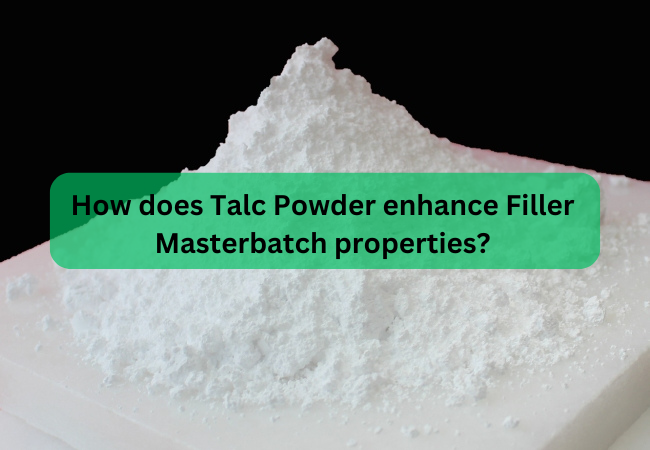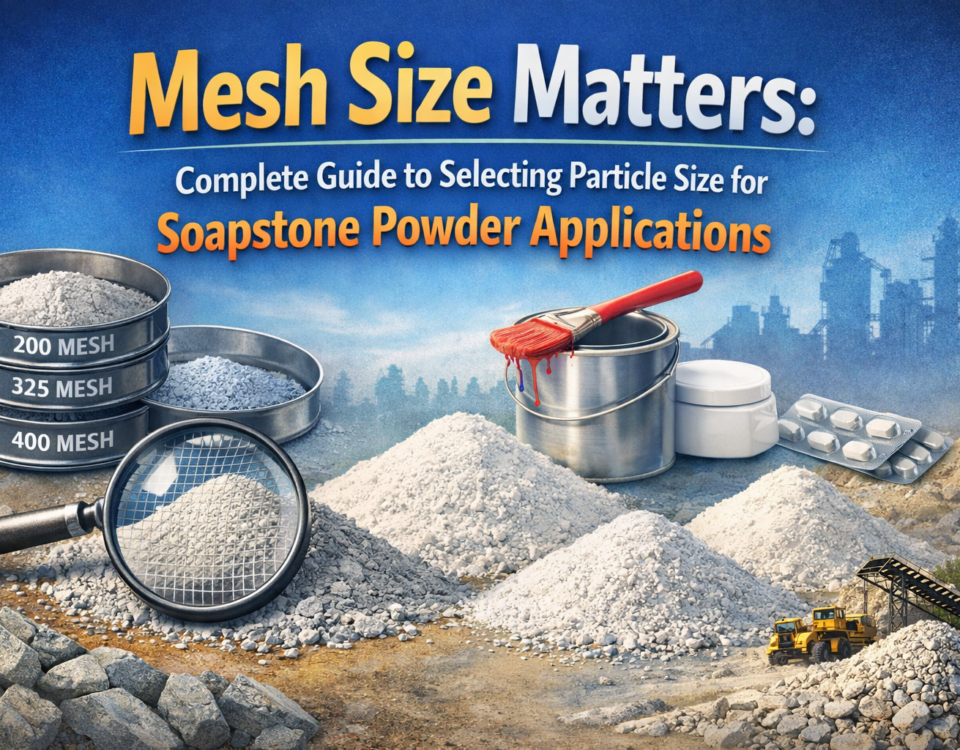- ISO 9001:2015 Certified Company
- +91-9672985402
- info@vasundharamicron.com
How does Talc Powder enhance Filler Masterbatch properties?

What Are the Main Properties of Calcite Powder?
July 8, 2024
Why Is India a Major Player in Mica Production?
August 12, 2024Vasundhara Miron is focused on the production of high quality talc powder for filler masterbatch. It is used to improve mechanical, thermal and dimensional properties of talc filled plastic products. At Vasundhara Miron, we provide value-enhancing solutions that enhance processability and appearance, making us your preferred partner for exceptional filler masterbatch performance.
Improved Mechanical Properties
Talc powder improves the mechanical properties of filler masterbatch by increasing the hardness, and tensile strength of the final product. This reinforcement hardens the plastic so that it can be more resistant to deformation when under stress. For instance, in car parts or construction commodities, better stiffness means that the products can easily handle a lot of force before they get to a point of bending or breaking.
Increased Thermal Stability
Mineral filler such as talc powder is used in plastic products to enhance the heat resistance of the products. Its high melting point and thermal conductivity gives the plastic the strength to hold its shape and not melt easily. This is very important for the applications where the material is exposed to high temperatures for example in electronics or high temperature industrial processes.
Enhanced Barrier Properties
In this manner, the filler masterbatch is improved in barrier properties by adding talc powder. This implies that the plastic becomes more and more efficient in preventing the passage of gasses and moisture, particularly in packaging. Increased barrier properties serve for the content preservation from the external conditions, including air and humidity, thus improving the product’s shelf life.
Better Dimensional Stability
Talc powder provides dimensional stability of the plastic products and reduces the shrinkage and warpage of the articles during the molding cycle. This makes it possible for the end products to have a specific shape and size as required, especially in precision engineering and control of quality in large scale production.
Improved Processability
Talc powder is used for improving the working of the plastic during the stages of extrusion and molding by reducing the friction. This improves the rheology of the polymer melt and as a result the processing is eased and energy is also saved. As the material is more easily processable, this also means that there are less defects and the quality of the final product is more uniform.
Reduced Cost
Talc is relatively cheap and therefore helps in cutting down the total cost of making the plastic products. Talc powder can be used in place of costly raw materials in the production of goods and services and yet it is still possible to produce quality goods with the desired properties.
Improved Aesthetic Properties
Talc powder improves the surface finish and aesthetic of plastic products in the process of manufacturing. It assists in getting a better finish with less roughness and variation in the colour of the surface. This is useful in applications where the aesthetics of the product are a major concern as in consumer products and fine packaging.
Enhanced Impact Resistance
Sometimes, the addition of talc powder can enhance the plastic products’ impact strength. This assists in the spreading out of stress evenly and therefore the item will not easily crack or break when an impact is applied to it. This improvement is useful for goods that can be exposed to mechanical stress or supplied with severe treatment during their usage.
In conclusion, Talc powder has a positive impact on the filler masterbatch properties in terms of mechanical strength, thermal stability, barrier properties, dimensional stability, and processability. It also saves money and improves appearance; it may also improve toughness in certain applications. These advantages make talc a useful filler for creating long-lasting, high-quality plastic items.



